Open call for tender for project: “Assessing health and safety risks in the hospital sector and the role of the social partners in addressing them: the case of musculoskeletal disorders and psycho-social risks and stress at work”.
Leading partner: HOSPEEM
Co-beneficiary: EPSU
Date of publication on the HOSPEEM website: 6 October 2014
Deadline to respond: 22 October 2014
 Download the Call for Tender
Download the Call for Tender
TENDER SPECIFICATIONS FOR SUBCONTRACTING EXTERNAL EXPERTISE
Background
Healthcare is one of the most significant sectors in the EU economy employing directly around one in every ten workers in the EU. The healthcare and hospital sector is also one of the sectors with the greatest potential for job creation in Europe due to different factors, not least the increasing demand for healthcare services due to demographic change. According to data of Eurostat in 2010 there were around 17.1 million jobs in the healthcare sector which accounted for 8% of all jobs in the EU-27.
The sector, however, faces major challenges that are multi-faceted and complex and that stem from the combined effect of different factors.
HOSPEEM and EPSU are committed to contribute to tackle these challenges, in particular in view of the extent to which they affect the health workforce, by making active and effective use of the social dialogue at EU-level.
It is on this backdrop that one of the two main topics of their joint work programme 2014-2016 focuses on the improvement of health and safety at the workplace by giving special attention to two hazards relevant in the health care sector, namely “musculoskeletal disorders” and “psychosocial risks and stress at work”. The project should help EPSU and HOSPEEM members to facilitate their work on identifying how actions on occupational health and wellbeing contribute to improved health as well as to retention within the healthcare sector. The project is relevant for the EU-level social partners in the hospital sector as better health and safety conditions are expected to have a positive impact on the recruitment and retention of health workers and on the efficiency of the healthcare institutions.
Objectives of the project
The common aim is to identify how actions aimed at preventing and managing these two occupational hazards can contribute to improved health as well as more attractive retention conditions within the healthcare sector. This objective is linked to the one of the improved efficiency in the management of healthcare institutions and workplaces by reducing costs linked to loss of productivity, sick leave and occupational diseases.
The activities under the project should help EPSU and HOSPEEM and their affiliates to work towards common views as to the analysis of the risks in hospitals and other health institutions, their relative weight, their incidence with specific groups of health workers or health professions and in view of identifying relevant measures, good practice and guidance to address them. They will build on existing material elaborated by their members.
The project should facilitate the task of identifying, collecting and comparing the material with a view of allowing mutual learning across the countries by exchanging on successful organisational models of OSH management, on tested material and guidance and on concrete measures.
The action will be delivered by organising two main conferences, by the elaboration of reports from the two events, by setting up of dedicated webpages on the HOSPEEM and EPSU websites to disseminate project outcomes and relevant material to target groups, and by involving external stakeholders in the events, where appropriate. Orientation and guidance will be provided by a “steering group” composed by representatives of the EU-level social partners jointly carrying out the project.
Based on an improved understanding of the issues at stake and after identification of the action points for the most effective follow-up that HOSPEEM and EPSU can take in the context of the joint work-programme 2014-2016 and beyond, the project results will be fed back into the work of the sectoral social dialogue committee to be discussed and assessed there.
Purpose of the contract
Support is being sought from an external expert to help to facilitate the project by providing background research, attending the two conferences that will be organised under the project, preparing reports from each of them (2 in total), gathering good practice examples from HOSPEEM members and EPSU affiliates.
Tasks to be performed by the contractor:
Supporting HOSPEEM and EPSU in selecting the speakers and drafting the agendas of the two conferences to be organised (one in Paris in March 2015 and one in Helsinki in November 2015, dates tbc)
- Supporting the work of the Steering Group by attending its three meetings (November 2014, June 2015, March 2016, dates tbc)
- Attending each conference and preparing reports from them (2 in total). The contractor will have to submit the two reports to the Steering Group for amendments and final approval.
- Gathering and providing to HOSPEEM and EPSU relevant literature on the subjects to support the work of the Steering Group and the organisation of the two conferences
- Supporting HOSPEEM and EPSU to gather good practice examples from HOSPEEM members and EPSU affiliates
- Coordinating with European organisations like EU-OSHA and Eurofound that are expected to play a role in the project
Time scheduling
The project is scheduled to begin in October 2014 and will last for two years.
- Kick off meeting of the Steering group (12 November 2014)
- Participation in the two conferences (March 2015 and November 2015, dates tbc)
- Reporting: after each event
- Second steering group meeting (June 2015, date tbc)
- Final steering group meeting (March 2016, date tbc)
Price
The budget available for external expertise is 14 500 Euros (VAT included)
- Travel and accommodation costs will be covered separately
Selection criteria:
The offers received will be examined on the basis of the following criteria:
Proven knowledge / Evidenced track record of research (supported by publications, academic articles etc.) on OSH and specifically on musculoskeletal disorders and psycho-social risks and stress at work
- Experience of working with European/national social partners
- Good knowledge of European Social Dialogue and of its outcomes
- Proven ability to draft documents in English
- Respect of the budgetary constraints
- Particular expertise in the healthcare sector will be considered as an asset
Award criteria
The contract will be awarded to the tender offering the best value for money, taking into account the specific criteria set above. The principles of transparency and equal treatment with a view to avoiding any conflicts of interest will be respected.
Content and presentation of the bids
Tenders must include:
- All information and documents necessary to enable the selection committee to appraise the bid on the basis of the selection and award criteria set above
- A detailed CV of the staff members to be assigned to the project
- Explanation of the proposed methodology for conducting the work
Offers must be submitted by the deadline of 22nd October both by post and email:
Elisa Benedetti
HOSPEEM
Rue des deux églises 26
1000 Brussels
Belgium
e-mail : e.benedetti@hospeem.eu

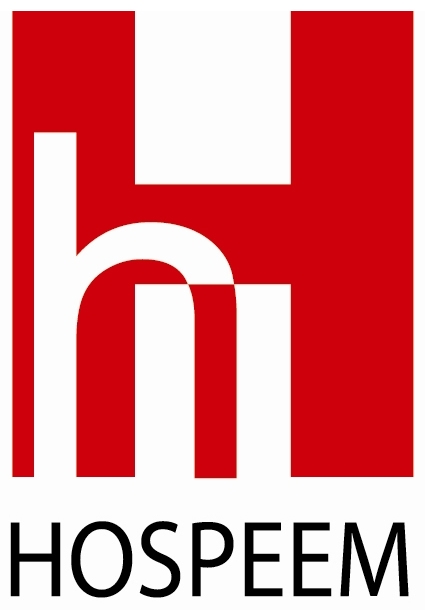
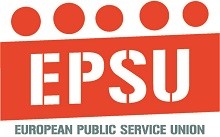

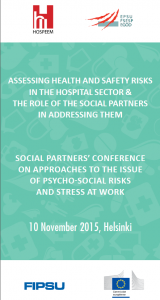
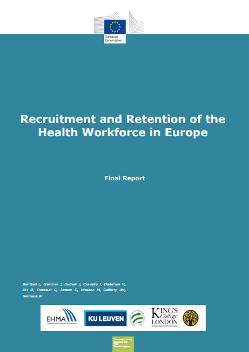

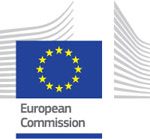
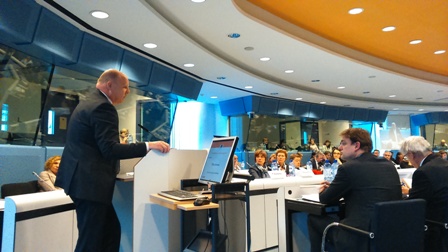



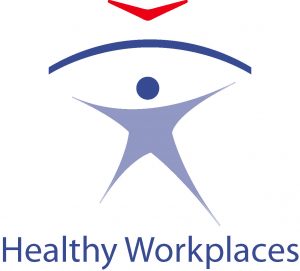

Recent Comments